Rest Well, Work Well: The Formula for Being Human
Reviewing Two Classics on the Link Between Work and Leisure
Serendipity exists on a spectrum. Unlooked-for graces sometimes lap at our ankles, leaving foam trails of refreshment behind; other times, they break over our heads and pull us into a rip current of wonder as the undertow gloriously, shockingly alters our orientation to the world.
Such was the case when I accidentally read a pair of books. Reading them was intentional, of course, but reading them together wasn’t planned. One speaks of rest. The other, work. It was a violent serendipity.

Josef Pieper’s Leisure: The Basis of Culture and A.G. Sertillanges’s The Intellectual Life mix a potent cocktail, one for which our culture thirsts yet cannot seem to find. We feel our deep need to live conflicting with the pressure to produce; we long to rest but find even our leisure cannot escape the taproot of extraction. Hobbies become hustles, relaxation becomes revenue, moments become monetized. Is my humanity doomed to commodification?
Together, Pieper and Sertillanges slake our thirst with a draught at once both intoxicating and sobering. Rest well, work well—this is the formula for being human.
Rest Well
It is important that I begin with Pieper. Because we in the modern West are so used to thinking about work in a particular key, it will be difficult to hear what Sertillanges has to say on the topic without the radical reframing of rest—and therefore work—that Pieper offers.
Leisure: The Basis of Culture was first published in German in 1952, with an English translation following eleven years later. It contains a pair of essays, “Leisure the Basis of Culture” and “The Philosophical Act.” “Both [were] written in the same summer, in a single breath, so to say; they both spring from the same thought,” writes Pieper in his preface to the English edition. It is the former essay that I will focus on for the purpose of this review.
Pieper is writing in post-World War II Europe, where the project of rebuilding is underway. What does he have to say to the harrowed masses whose aim is to raise the Western world—materially and culturally—from the rubble?
He begins with Aristotle: “We are unleisurely in order to have leisure.” The Greek skole, from which we get our English school, meant “leisure.” The word for work? There are many, but among them is ascolia: nonleisure. Where we think of work as our center of gravity, the Greeks orbited leisure. You’re working? You’re being “unleisurely” for a time before returning to center: leisure. Aristotle’s quote is in direct opposition to Max Weber’s paradigmatic statement that “one does not work to live; one lives to work,” which makes far more sense to us moderns.
It seems an odd place to start, leisure. After all, Europeans were busy with important work and there was plenty of it to do. What audacity to suggest it should be slowed! But at that critical moment of cultural rebuild, Pieper wants to remake the ancient distinction between the “liberal arts” and what gets translated into English as the “servile arts”: the arts that free men and those that are bound to fulfilling common need; the arts that are useless, whose ends are in themselves, and those that are useful, whose ends are practical and beyond themselves.
Only by recovering a capacity for leisure can we properly order ourselves to work and thereby revivify our withering humanity, out of which a culture can then grow. If Europe wanted more than buildings, more than homes—if they wanted a culture again—they would have to put down their work and learn to occupy their leisure.
Pieper’s argument goes like this:
Divine worship—the cultus—is the ground of leisure.
Leisure, far from being “doing nothing,” is the kind of activity that is nonutilitarian, not bound to the fulfillment of need but rather superfluous, festive, celebratory.
It is from leisure activity that culture emerges.
He is working from Aristotelian categories, so “divine worship” here does not require a Christian interpretation. That said, I have not yet thought of a way to apply this argument to those who are of no faith; I leave that to the reader to ponder for themselves.
Leisure—also called contemplation and rest at other times in the essay—is a mode of active reception. It lets things happen. Leisure makes one open to serendipity, or we might say to grace. “Leisure is a form of silence,” says Pieper, “of that silence which is the prerequisite of the apprehension of reality: only the silent hear and those who do not remain silent do not hear.” Silence is not noiselessness, but rather “the soul’s power to ‘answer’ to the reality of the world [which] is left undisturbed.” Leisure is both capacity and occasion, both faculty and action.
For Pieper, leisure is essential to our human constitution, and therefore the regime of total work—a regime in which all activity is subjugated to production and tethered to ends, in which leisure is merely the hollow pause between efforts—flattens and ultimately rejects our humanity. Work is good, but so too is leisure. We are human when these are held together; we are less than human when we favor one over the other. “The point . . . of leisure [is] not that the functionary should function faultlessly and without breakdown,” says Pieper, “but that the functionary should continue to be a man.”
Some examples:
The eye in the mode of work observes: it measures and calculates and scrutinizes; but in the mode of leisure, it looks: it beholds with lingering gaze and savors.
The foot in the mode of work marches: it carries forward with purpose to a destination; but in the mode of leisure, it meanders: it strolls along to nowhere in particular and wanders with no sense of urgency.
The hand in the mode of work grasps: it points and manipulates; but in the mode of leisure, it plays: it effortlessly forms pure gestures and motions that indicate nothing at all.
A few more: The working tongue swallows to satiate hunger, but the leisurely tongue tastes; the working body labors to produce, but the leisurely body dances; working language fills textbooks, but leisurely language fills volumes of poetry. Work takes things and makes them useful; leisure receives things and allows them to remain useless. Work instrumentalizes to fulfill need; leisure playfully savors things in themselves.
I think it safe to say that we in the modern West have lost our category for leisure, which is why Pieper’s essay is so important. What we call “leisure/rest” remains a functional element of production. Because we think of leisure as respite from work, analogous to what is left when a cup’s contents are poured out or to darkness after the light is snuffed, it is derivative of work and therefore a species of work.
Pieper reminds us that leisure is a human capacity just as foundational and full as our capacity to work and points a way towards reclaiming it. Serendipity is not at the whim of human volition and can only come to those whose power to answer and to savor is left undisturbed. It can only come to the leisurely.
Work Well
The Intellectual Life: Its Spirit, Conditions, and Methods by A.G. Sertillanges makes an incredible complement to Pieper’s Leisure. First, they are both working from a Thomistic frame, so when Sertillanges invokes leisure, Pieper can safely come to mind.
Second, where Pieper is helping the reader think through leisure, Sertillanges wants the leisurely reader to take up their work. One gathers from the title that he has the intellectual vocation in mind. No matter. The spirit (chapters 1–3) and most of the conditions (chapters 4–6) apply to all kinds of work, while the methods (chapters 7–9) are a nuts-and-bolts guide for the intellectual.
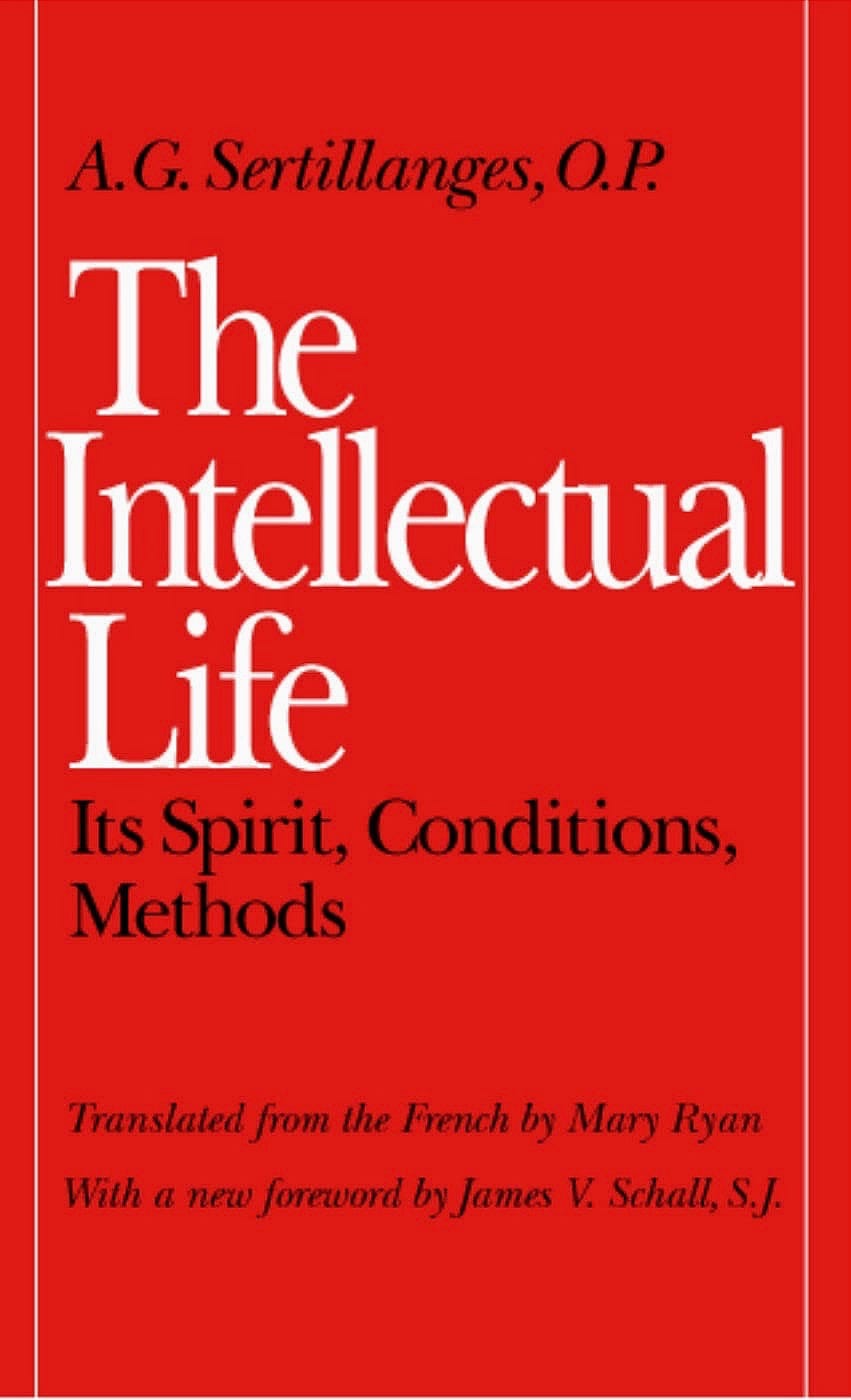
There is a third reason for the books’ complementarity: Sertillanges begins where Pieper ends. “Every [vocation] begins by a moment of ecstasy,” he states in the preface. “This truth . . . is revealed to us only in the silence of the soul. . . . Vocation calls for response which, in one effort to surmount self, hears and consents.”
Leisure not only is the basis of culture, it is also the basis of vocation and working well. Vocation appears in a moment of serendipity that takes us outside of ourselves. It is then up to the one receiving the call to a particular work to “not undertake anything beyond [their] power, but . . . go on to the limit of [their] power.”
Sertillanges’s vision is cosmic. His considerations wend along the contours of one’s virtue, the relationship of work to conscience, stopping along the way to observe particular faculties as they impact the execution of vocation.
One that applies to everyone—whether plumber or pediatrician or pedagogue—is attention. “On what,” he asks, “first and foremost, does all the effort of study depend?” There is no vocation that does not require studiousness. “Passions and vices relax attention, scatter it, lead it astray.”
The enemies of not only attention, but of knowledge and ultimately of one’s work—aside from stupidity, Sertillanges is quick to add—are vices: sloth, sensuality, pride, envy, irritation. “Without these obstacles, a man of study will rise to heights greater or less according to his resources and environment; but he will reach the level of his own gifts, of his own destiny.”
From the inner world Sertillanges turns to the outer world of one’s immediate environment and schedule. Ordering space and time is key to working well. If one accepts the ideals of their work as a vocation, as a call to something beyond themselves, then this merits an organization of life that allows for facility of movement, for uninterrupted stillness, for availability and arrangement of resources.
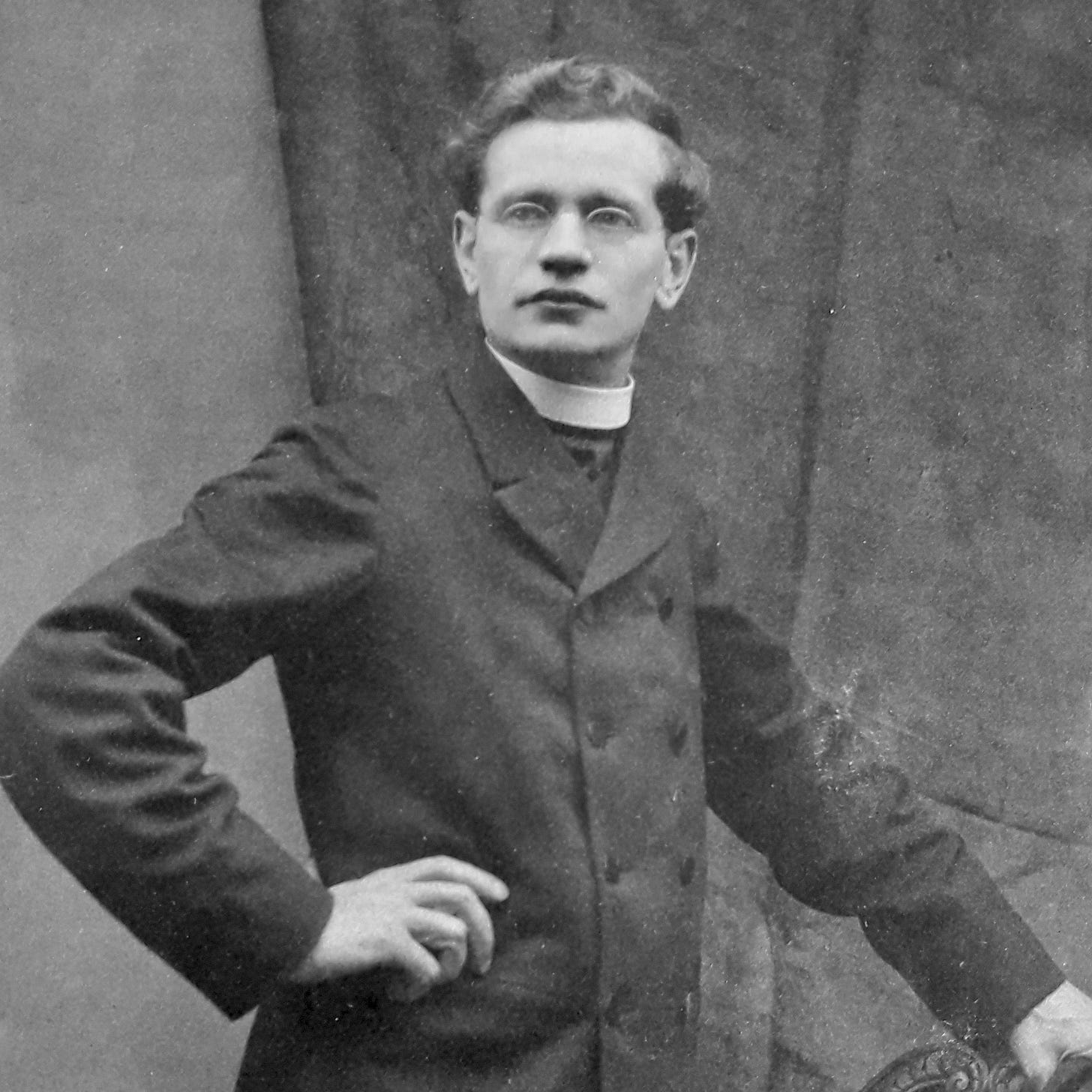
Beyond this—and manual laborers will know better than most—one’s body, the mediator between one’s inner and outer worlds, must be healthy. Even if one’s vocation is intellectual! Sickness fogs the mind and induces lethargy, which impedes clarity. A sick or deteriorating body will affect the mind, to say nothing of one’s emotions and virtues.
A sampling of questions that are raised and answered by Sertillanges, relevant to most any profession: Ought one to be a specialist? A generalist? Or both? Is your work your own? How does one resist becoming a mere cog of the societal machinery? What is the true end of our vocation? What of advisors and mentors: who and how many? Which are the best resources? What is the worker’s relationship with other disciplines and industries? How does one overcome a slump or a particularly troublesome trial? Can we avoid burnout?
For Sertillanges, the point of work is not to “be a worker,” but to become a whole man. This should sound familiar; it’s also what Pieper said. Sertillanges wants the worker— with perception trained by careful practice and sustained diligence—to see the fruit of their labor not simply as a product, but as an artifact of Truth. And gazing upon Truth, savoring it, is what contemplation is, what leisure is.
Be Human
And so we come full circle. Pieper and Sertillanges hold out a chalice mixed with the water of rest and the wine of work and bid us drink, and deeply. Pieper would have us occupy our leisure; Sertillanges would have us take up our work. Both want us to be human.
To be a human is to act and to receive, part product and part grace, part striving and part settling in. If we will be whole, we must risk that violent serendipity which threatens our lives but gives us ourselves.
Thanks for reading! If you enjoyed this post, please hit the ❤️ icon, share it with a friend, and 💬 discuss it in the comments below.
More remarkable reading is on its way. Don’t miss out. Subscribe for free below.
See also:
And make sure to tour my new book, The Idea Machine: How Books Built Our World and Shape Our Future.


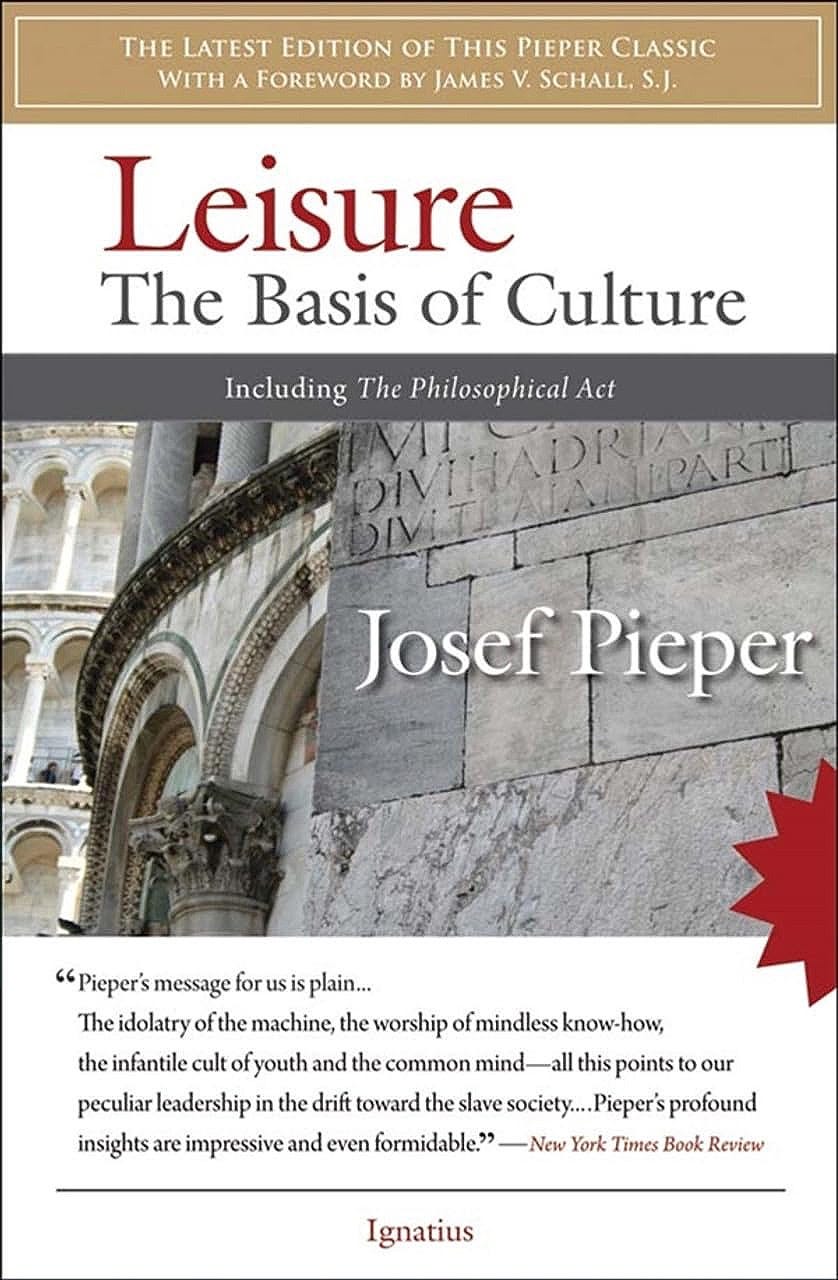
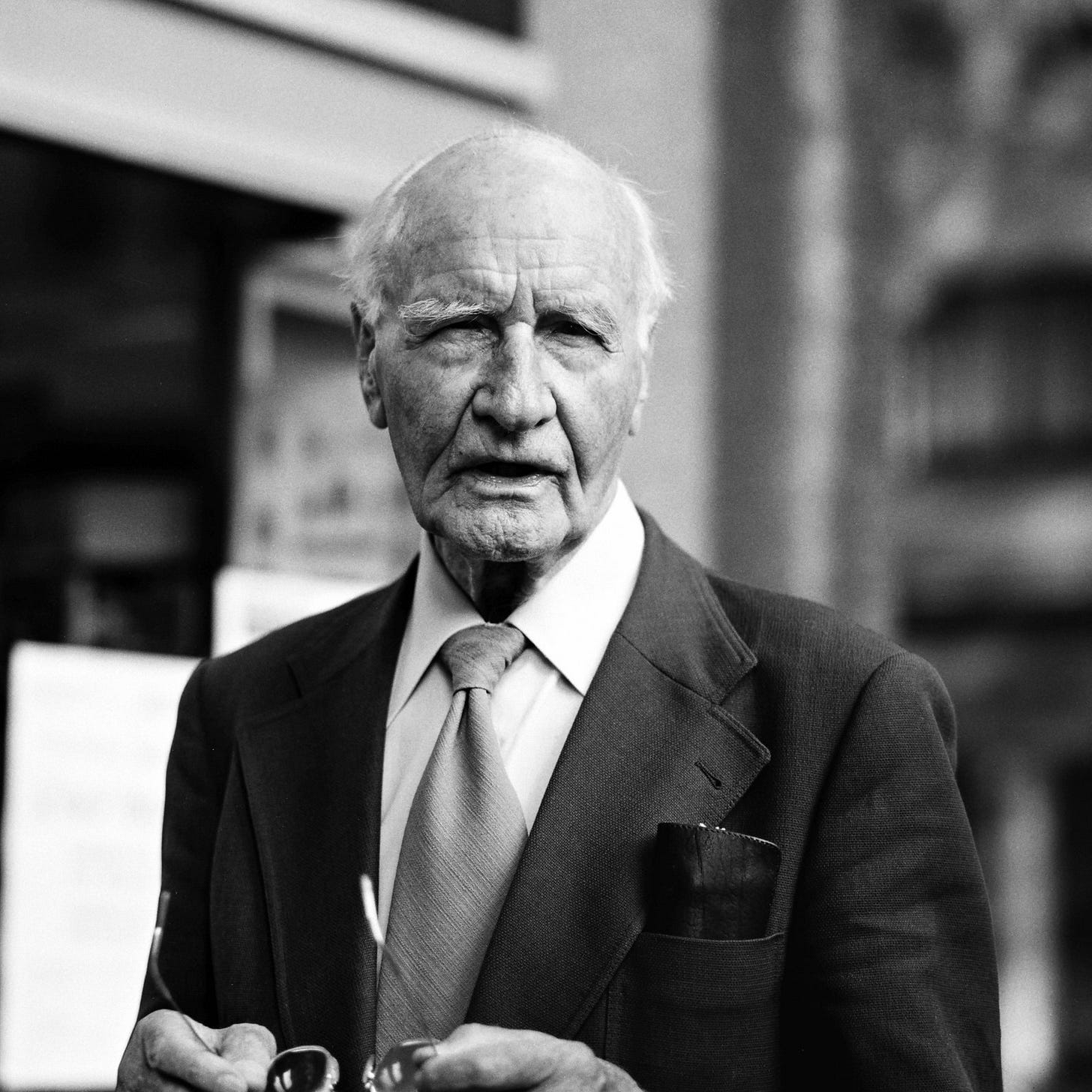
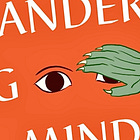



Quite a brilliant piece. Thought provoking and personally inspiring.
In my college years, there was a seminar on the social history of work. I once asked the professor if she should also address the concept of leisure, as work and leisure were inextricably entwined. She just gave me a blank stare. She truly didn't get it.
Instead of leisure, I would call it rest. I find my mind can better work out a problem, when it is well rested, not just in sleep, but in thinking about something else. When I studied nursing, I took language and history for electives, not because they were easy, but because they allowed the part of my brain occupied with health science to rest.
Cannot agree with Sertillanges' idea of needing to be whole in body for the intellectual life - some of the most brilliant writers, artists, and musicians were very sickly, through no fault of their own. TB was without cure until the 20th century, and no doubt Alexander Pope, R. L. Stevenson, John Keats, Frederick Chopin, Aubrey Beardsley, and others would have lived longer and been healthier without the infection, but they were brilliant anyway. For those of us who have chronic health conditions, the intellectual life is often all that is left.